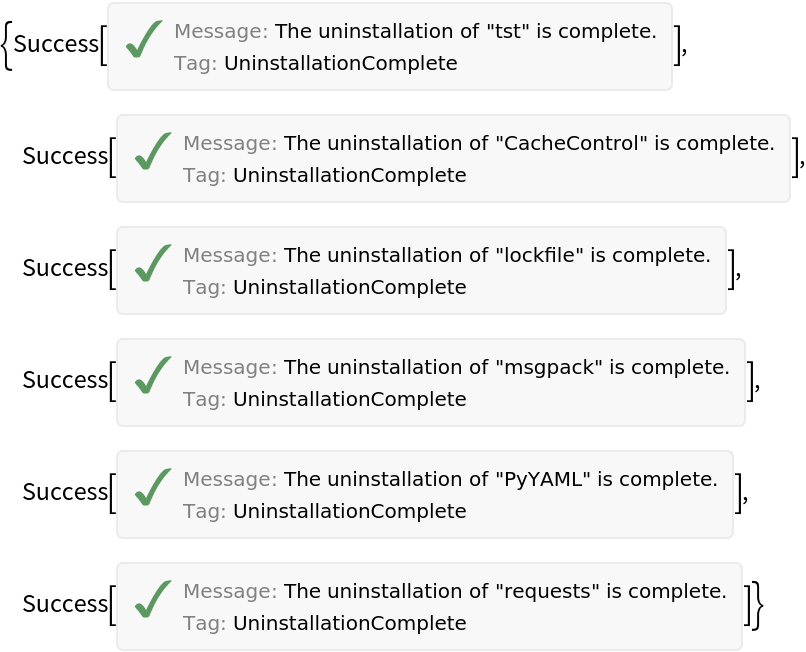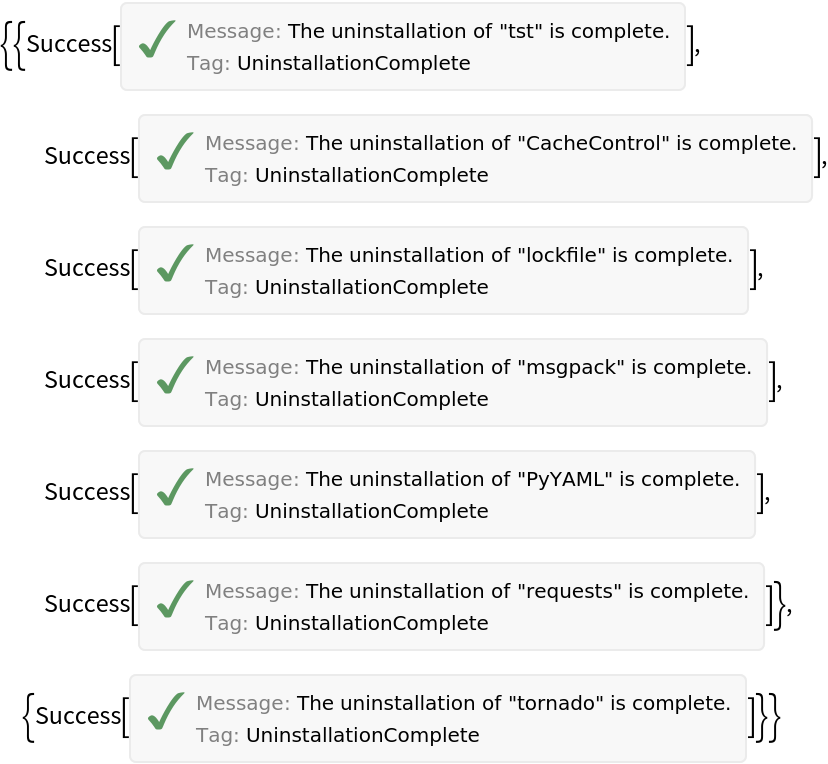Wolfram Function Repository
Instant-use add-on functions for the Wolfram Language
Function Repository Resource:
Install a Python package
ResourceFunction["PythonPackageInstall"]["name"] installs the Python package "name". | |
ResourceFunction["PythonPackageInstall"][{"name1","name2",…}] installs packages "namei". | |
ResourceFunction["PythonPackageInstall"][packages] installs the specified versions of the packages. | |
ResourceFunction["PythonPackageInstall"][python,packages] installs for the given Python installation. |
| "InstalledDependencies" | an association of installed package dependencies |
Install a Python package:
| In[1]:= |
| Out[1]= |
Uninstall it:
| In[2]:= |
| Out[2]= |
Install a package with dependencies:
| In[3]:= |
| Out[3]= |  |
List the installed dependencies:
| In[4]:= |
| Out[4]= |
Uninstall the package with its dependencies:
| In[5]:= |
| Out[5]= |  |
Install several packages:
| In[6]:= |
| Out[6]= |  |
Uninstall the packages:
| In[7]:= |
| Out[7]= |  |
Specify the required version using the Python convention:
| In[8]:= |
| Out[8]= |
Clean up:
| In[9]:= |
| Out[9]= |
Specify the version as a rule:
| In[10]:= |
| Out[10]= |
| In[11]:= |
| Out[11]= |
Or as an association:
| In[12]:= |
| Out[12]= |
| In[13]:= |
| Out[13]= |
Make use of the same external session:
| In[14]:= |
| Out[14]= |  |
| In[15]:= |
| Out[15]= |
| In[16]:= |
| Out[16]= |
End the session:
| In[17]:= |
In case of an error, the Failure object may contain a useful information returned by the underlying pip install command:
| In[18]:= |
| Out[19]= |  |
PythonPackageInstall returns a Success object if the required version is already installed, or not specified:
| In[20]:= |
| Out[20]= |  |
| In[21]:= |
| Out[21]= |
| In[22]:= |
| Out[22]= |  |
| In[23]:= |
| Out[23]= |
If the versions do not match, PythonPackageInstall returns a Failure object:
| In[24]:= |
| Out[24]= |
Both Success and Failure objects with the tag "PythonPackageAlreadyInstalled" contain the location of the installed package:
| In[25]:= |
| Out[25]= |
| In[26]:= |
| Out[26]= |
| In[27]:= |
This work is licensed under a Creative Commons Attribution 4.0 International License